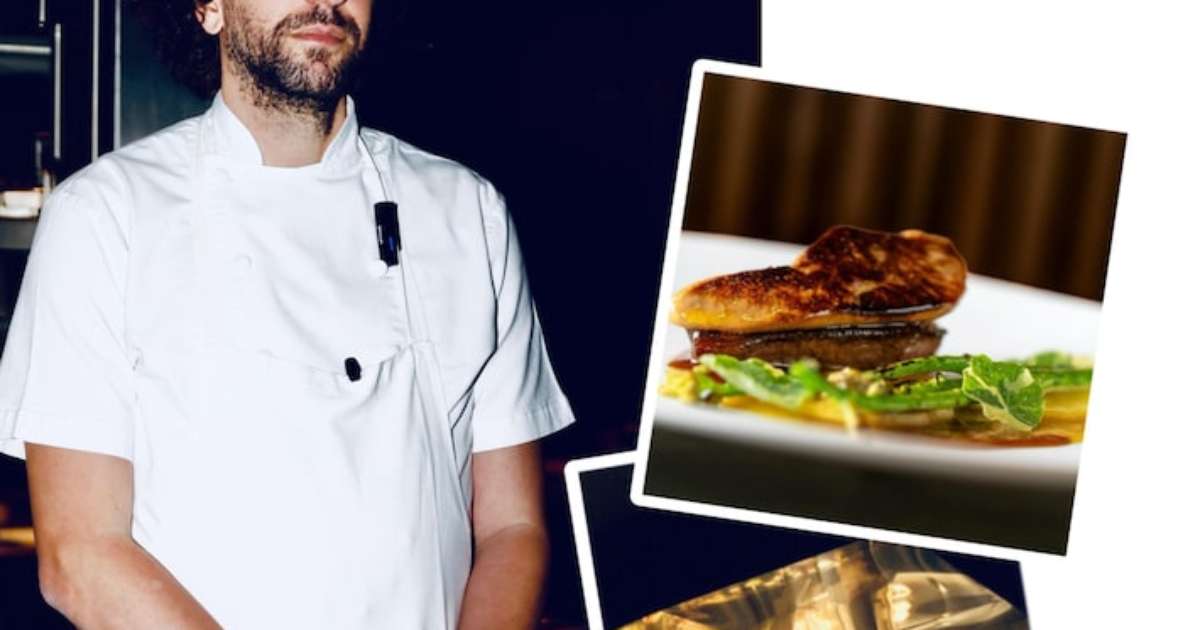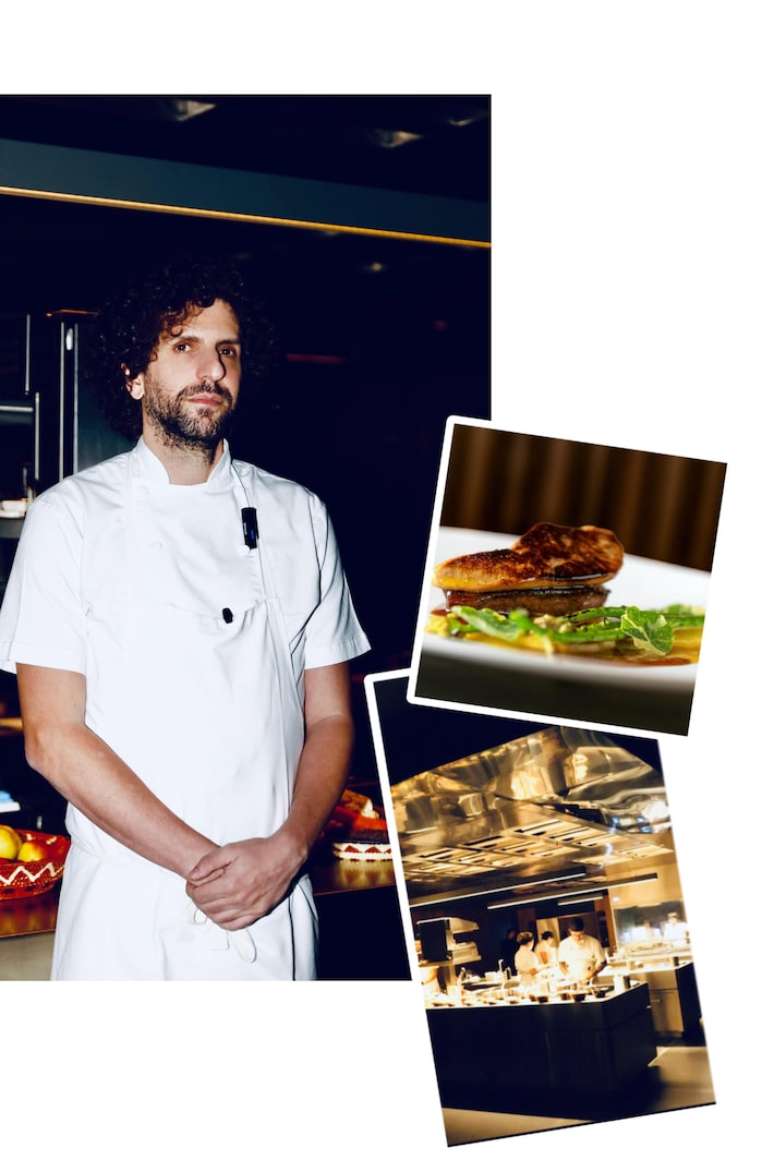Tuju Restaurant highlights São Paulo cuisine and respect for nature
[ad_1]
“There's no secret or mathematical formula. We're just looking for really great cuisines.” This is how the criteria that guides the recognition of one of the greatest merits of world gastronomy, also known as Michelin Star.
To become “starred”, the establishment is evaluated by a global technical jury and must exceed certain criteria: quality of ingredients, harmony of flavors, mastery of techniques and personality of the chef, with absolute focus, according to the team itself. who makes the guide, it's always “the food on the plate”.
About a week ago, in São Paulo, the chef Ivan Ralston it's yours Aim had their two Michelin Stars revalidated. The restaurant also became the only Brazilian restaurant to win the sustainability seal, the Green Michelin Star, which highlights the exponents in the adoption of sustainable and ethical practices in the world of gastronomy. “This new recognition is something that brings me great personal satisfaction”, comments Ivan about Tuju's new seal of approval. “Respect for nature and the intention to bring good ecological practices to our routine are important here at the restaurant, even in the architecture of the space. Our roof, for example, has a specific shape to capture rainwater, which is stored and gains new uses.”
With a ten-step menu, which varies according to the season and gives absolute priority to seasonal ingredients, coming from small local producers, Tuju's cuisine is not packed with complex concepts. Ivan brings to the table a cuisine of affection and memories: “I come from a family in which food was very present in different aspects. I was surrounded by it on all sides and it is something that influences me a lot here”, recalls the chef, when talk about how you build your cuisine. At the restaurant, which opened its doors in 2014, went on hiatus during the pandemic and returned to activities, redefining its journey, in September last year – in a new space located in an unpretentious cul-de-sac in Jardim Paulistano -, the Culinary is self-defined in three words: “São Paulo seasonal cuisine”.
Roots
The current season, for example, is the so-called dry season, “the time of year with less rain and low humidity in the air”, explains the chef. “For this reason, we work a lot with roots, such as radishes, and some fruits, such as loquats and tree tomatoes, which are very common in Serra da Mantiqueira”, informs Ralston. “After studying and knowing the region in more depth, we were able to better understand seasonality in Brazil, especially in São Paulo. Here it is not like in the northern hemisphere, where seasons are defined by temperature; our seasons are much more based on the amount of rain and the level of water available in the soil to grow each food. It's not about whether it's hot or cold”, adds Katherina Cordás, culinary researcher and Ivan's wife, who runs the restaurant's research center.
In the ingredients lies the materialization of the basis of Tuju's gastronomic proposal, which seems to want to assert roots and value the present moment. “The seasonality and regionality of the menu propose different feelings. At some times it can be more challenging, at others, it comes as a comfort. And there are also stages that awaken memories”, says Ivan, who draws a parallel between cuisine and field of arts: “It's like good music, which harmonizes between the highest and lowest moments.”
In addition to regional products, chef Ralston's cuisine also incorporates inputs from the four corners of the world – and also from other regions of Brazil -, such as Caviar from Tibet, pistachios from Iran and cocoa from Bahia. “Around 95% of the inputs we use are local, coming from all over the State, but our menu also includes ingredients brought from other places, as well as the population of the capital of São Paulo itself”, explains Cordás. “São Paulo is multicultural, it is a city that carries many references and is made up of people coming from different places around the world. People who bring their cultural load, their stories, their ingredients – and all the diversity that this forms is what we call São Paulo cuisine. Our cuisine also reflects this characteristic of our local cuisine.”
The experience, however, goes beyond taste and involves all the senses, through the ambiance. The restaurant's design is by Angelo Bucci, founder of the renowned São Paulo office SPBR, known as the architect who “seeks designs full of meanings”. This intention materializes in the Tuju project and suggests a series of connections with Ralston's gastronomy when analyzed through the concepts of neuroarchitecture, a theory based on neuroscience that defines the influence that spaces have on human behavior and sensations.
From this perspective, the restaurant's entrance corridor serves as a transitional element in the visitor's perception, as they leave the space where they were and turn towards where they are going to enter. In the internal courtyard, which welcomes those who arrive, new elements open up space for analysis. The space rises to a ceiling height with a zenithal opening. According to neuroarchitecture, spaciousness brings tranquility to the environment, as do wood and natural vegetation, both used with maximum prominence in the space. The culinary experience begins there, a first stage in preparation for the second: dinner.
Experience
Chef Ivan Ralston's cuisine is tried on the first floor of the restaurant, in the room whose ambiance is different from that of the patio. In the center of the space is the kitchen, completely open and bright. Around it, large round tables are arranged under low lighting. The environment is perfect so that each diner has the opportunity to focus on their own culinary experience. The terrace, in turn, was set up with large and inviting sofas. In this third environment, there is an apparent invitation to relaxation and socialization in the atmosphere, where the night ends lightly.
According to the Michelin Guide, two stars “are awarded when the chef's personality and talent are evident in his expertly prepared dishes; his food is refined and inspired”, uniting technique and identity. A select group of restaurants in which Tuju fits in with flying colors.
[ad_2]

